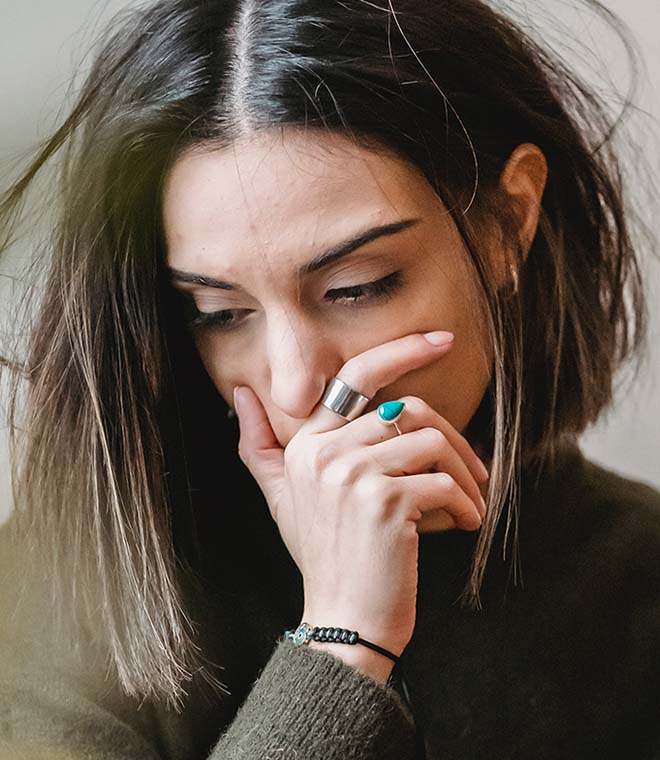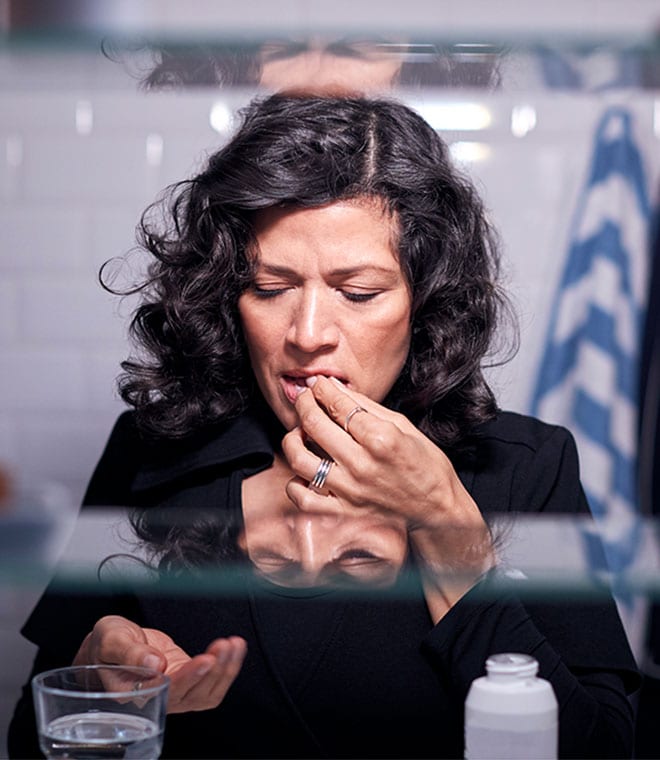Health
How long do cold sores last?
By Anna H. Chacon, MD, Fellow of the American Academy of Dermatology Sep 10, 2024 • 6 min
Cold sores are painful, unsightly and seem to last forever. There is no cure for cold sores or the herpes simplex virus that causes them, but certain treatments can help shorten their duration. It can be helpful to understand how long cold sores last and what you can do to help them heal faster.
The symptoms and stages of cold sores
The first symptom of a cold sore is often a tingling or itching sensation where the sore will appear a few hours to around two days later. When the cold sore appears, it may start as a slight, fleshy bump that soon develops small, fluid-filled blisters. After a few days, the blisters break open and weep the fluid, then dry up and form a yellowish-brownish crust. A few days after that, a dark brown to black-colored scab begins to form on the sore. The scab eventually decreases in size and flakes off, and once it’s gone, the cold sore is completely healed. However, cold sores can return at any time, especially when there are certain triggers, like changes in your immune system, hormones or stress.
How long do cold sores usually last?
Left untreated, cold sores typically last one to three weeks from the first tingling sensation to full healing. In people who have a weak immune system due to cancer treatment, immune disorders, like HIV, or an organ transplant, cold sores may take longer to heal. The first time a person gets cold sores is usually more severe than subsequent outbreaks. Symptoms often become less severe over time, and the duration of the cold sore is often shorter.
Can medication speed up the healing of a cold sore?
Antiviral topical ointments, creams or gels may reduce the healing time of cold sores by a day, and they may even help prevent blisters and scabs from forming. Over-the-counter antiviral medications contain ingredients like docosanol and lysine. Further research is needed to determine how well lysine works for treating and preventing cold sores. The sooner you start using an ointment for cold sores, the better it will work. Treatment with these ointments should be started within 24 hours of symptom onset to be effective. If you get frequent cold sores, keep one of these products on hand, and apply it as soon as you feel the familiar tingling or itching sensation. Then follow the directions on the product to apply the medication properly and for the full indicated time of treatment.
Is it possible to prevent a cold sore?
Antiviral medications like acyclovir, which are taken orally in tablet form, can help reduce the frequency, duration and severity of cold sores when taken for the long term by those who experience frequent outbreaks. These medications are only available by prescription.
Short-term oral acyclovir therapy may be prescribed to prevent cold sores, although research into its effectiveness is inconclusive. If you get cold sores frequently and have an important event coming up, such as a vacation, wedding or public performance, taking this medication for a week prior to the event and for the event’s duration may keep a cold sore at bay.
Cold sores have several known triggers, including stress, illness, exposure to extreme temperatures or UV rays, hormonal changes such as menstruation, and dry, cracked lips. Knowing what triggers your cold sores and taking good care of your skin and lips every day can help you avoid cold sores or reduce their frequency and severity.
Other ways to help shorten the duration and severity of a cold sore
A cold sore is going to run its course, but in addition to using topical medications to speed up healing, you may be able to shorten the healing time with these tips:
- Don’t touch the cold sore with your fingers or tongue.
- When you apply topical medication to the sore, thoroughly wash your hands before and after, or use a clean cotton swab to apply it.
- Protect the sore from exposure to UV rays from the sun or tanning bed with a lip balm and sunscreen containing SPF 30.
- Don’t pick at the sore during the crusting or scabbing stage, even if the crust or scab is loose or partially detached. Picking often causes injury and bleeding, which prolongs healing and can worsen the appearance of the sore.
Cold sores are contagious, and you can spread them to other parts of your body, including your eyes. You can also spread them to other people. Make sure that you do not share utensils, drinking cups, washcloths or other items that have possibly touched your cold sores. Wash your hands frequently and avoid touching your eyes accidentally if you’ve touched your cold sore.
If you get cold sores frequently, or if they’re particularly severe, painful or long-lived, visit your healthcare provider for an evaluation and personalized treatment and prevention plan.
Updated by Julie McDaniel, MSN, RN, CRNI, September 2024.
Sources:
- https://www.ncbi.nlm.nih.gov/books/NBK525782/
- https://pubmed.ncbi.nlm.nih.gov/34197838/
- https://www.ncbi.nlm.nih.gov/books/NBK525765/
- https://www.aad.org/public/diseases/a-z/herpes-simplex-symptoms
- https://www.merckmanuals.com/professional/infectious-diseases/herpesviruses/herpes-simplex-virus-hsv-infections
- https://www.mayoclinic.org/diseases-conditions/cold-sore/symptoms-causes/syc-20371017
- https://www.mayoclinic.org/drugs-supplements/docosanol-topical-route/proper-use/drg-20063494
- https://www.mountsinai.org/health-library/supplement/lysine
- https://www.mayoclinic.org/drugs-supplements/acyclovir-oral-route-intravenous-route/proper-use/drg-20068393
- https://health.clevelandclinic.org/what-triggers-cold-sores
- https://www.aad.org/public/diseases/a-z/cold-sores-self-care
- https://medlineplus.gov/ency/article/000606.htm
- https://my.clevelandclinic.org/health/diseases/21136-cold-sores



